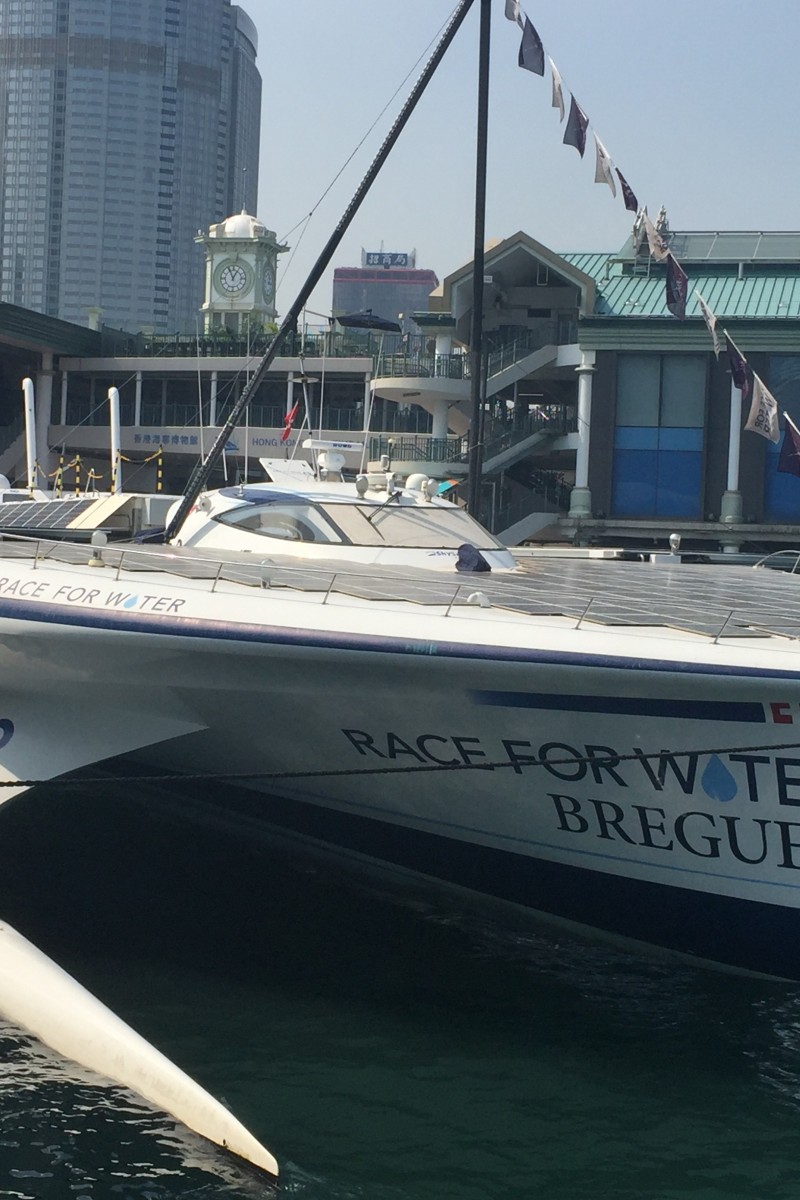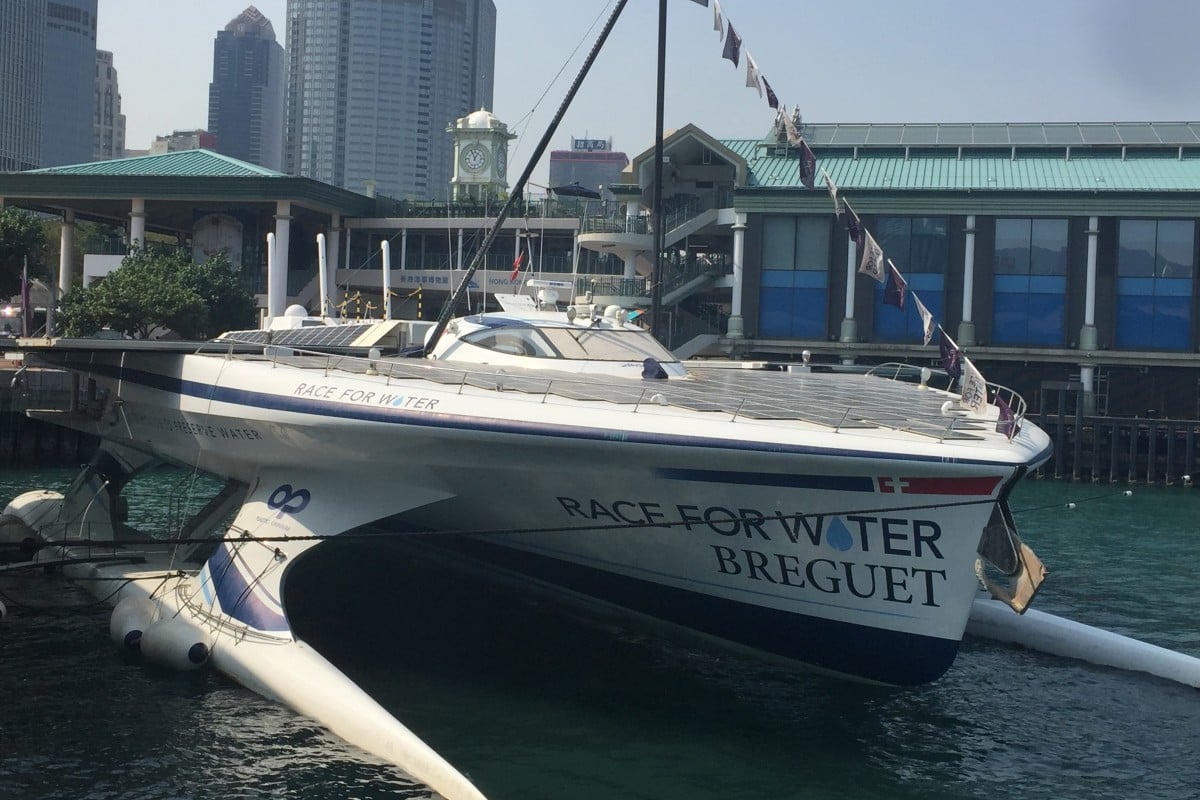
Fighting plastic pollution with global awareness: The Race for Water Foundation is on a mission to save our oceans
One of their initiatives is The Odyssey, a research boat that is on a five-year expedition around the world to collect data about pollution in our seas
 Race for Water's research boat, The Odyssey, is stopping in cities around the world – including Hong Kong.
Race for Water's research boat, The Odyssey, is stopping in cities around the world – including Hong Kong.On a clear, warm day in October, non-profit group Race for Water docked their ship, the Odyssey, at Hong Kong’s Central pier. The ship had departed from Lorient, France, six months earlier. It was the start of a five-year journey around the globe to raise awareness about plastic pollution in the world’s oceans, and push for innovate solutions. Hong Kong was its 22nd stopover.
Race for Water was founded in 2010 by Swiss entrepreneur Marco Simeoni, and the organisation embarked on its first round-the-world research expedition in 2015. The goal was to gather information about the so-called “plastic islands” thought to exist throughout the world’s oceans. But as they travelled, the research team discovered that these islands were more like “plastic soups” made of plastic microparticles spread out over the sea. They soon realised that removing this waste from the ocean would be extremely difficult.
Race for Water decided to instead focus their efforts on promoting innovative solutions that tackle plastic pollution at its root. The Odyssey’s second expedition is now underway, and the solar and wind-powered ship has already brought its message to 17 countries, from Peru to Indonesia.
Young Post sat down with Jean-Marc Normant, the current captain of the Odyssey, to talk about the project.
“We have three main goals: first, to learn; second, to share; third, to act,” says Normant, explaining Race for Water’s three-pronged approach to tackling water pollution. The group combines research, like the 2015 expedition, with advocacy – speaking at various public forums worldwide – and action.
“It’s really difficult to remove plastic once it enters the ocean,’’ says Normant. “The idea is to reduce the impact of plastic by reducing the amount that enters from the shore.”
The group is championing an exciting new piece of tech that could do just that. Known as the Spirajoule, it is essentially a giant heated screw that can convert plastic into electricity, heat, or commercial gases. “Plastic is the problem”, says Normant, “but it can also be the solution”.
Normat then explains how the Spirajoule works. First, plastic waste is collected on land. It is then shredded into small pellets. These pellets are then put through the machine, where they are heated until they decompose. This decomposition produces energy which can be used to power homes.
“But most importantly, the production of all these resources leads to cash”, adds Normant. This money can be put towards employing more people to collect waste, leading to the creation of new jobs. “It’s a cycle,’’ says Normant. “A really beneficial cycle”.
In the fight against pollution, your favourite seafood may soon play a major role
But while the solution is within reach, initiatives like the Spirajoule need public and government support – and time is running out. It’s estimated that by 2050, there will be as much plastic in the ocean as fish.
“We have to do something right now”, says Normant. “You’ll have to take action sometime soon, but we want to make change now, rather than relaxing on our sofas.”
Normant is determined to get Race for Water’s message to as many nations, communities, and individuals as possible. “We have to act, each and every one of us. Each person can make a drop, and a group of drops represent action. If we take action together, I think we can solve this problem”.
